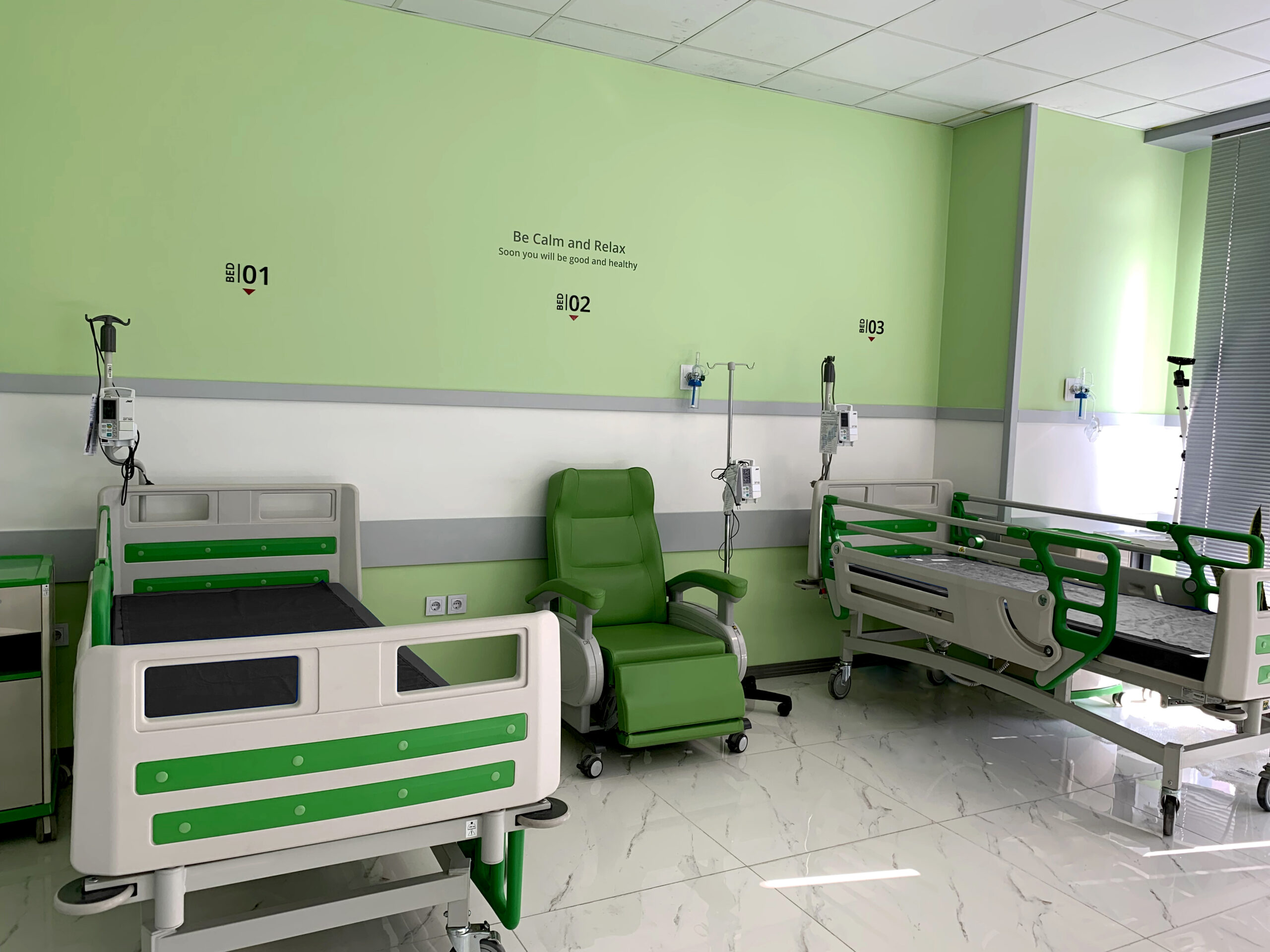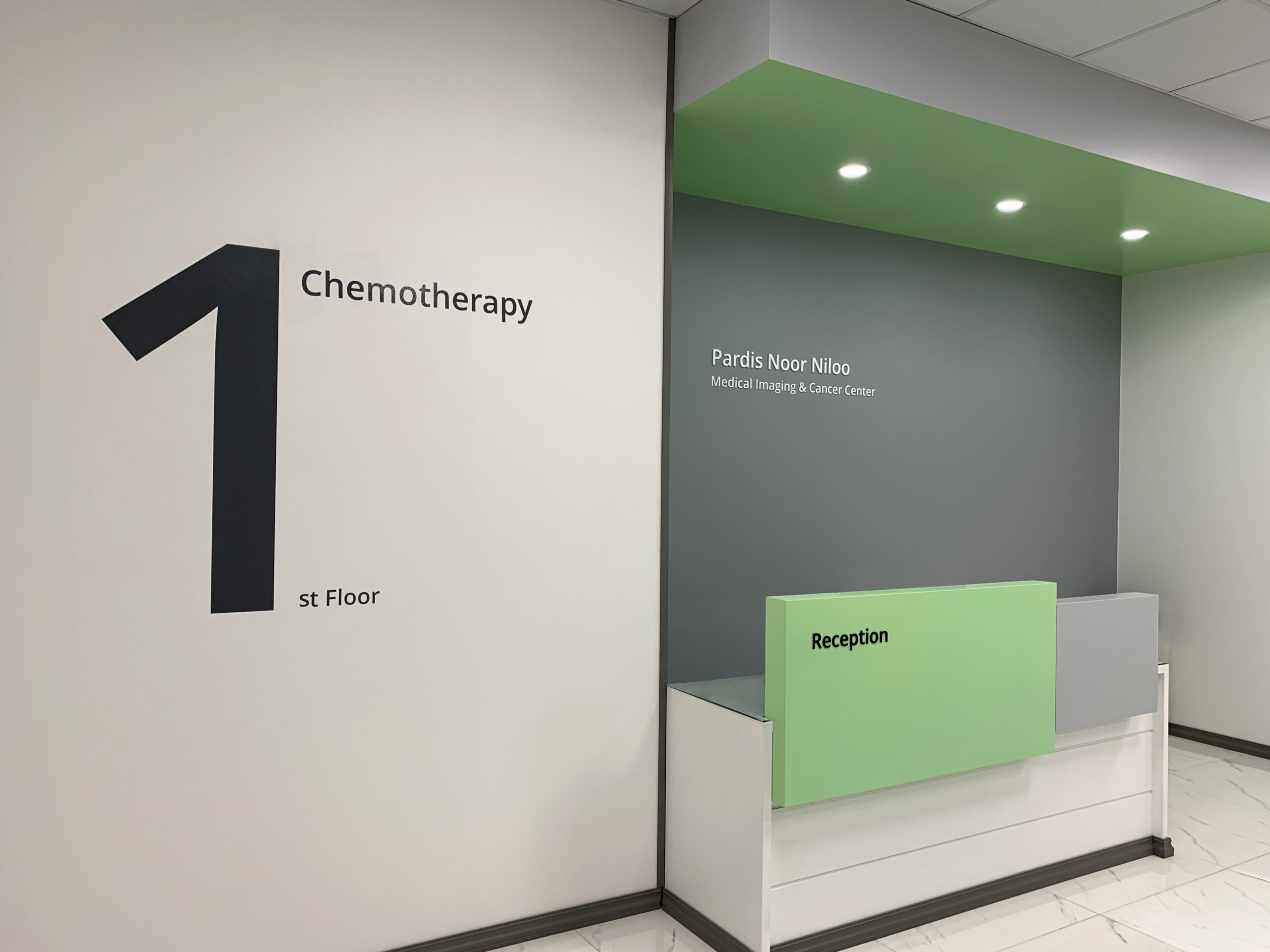



Chemotherapy Ward
Chemotherapy, often referred to simply as “chemo”, is a type of cancer treatment or temporary relief of cancer using specific drugs to destroy cancer cells.

The main function of these specific drugs is to eliminate the cancer cells in the patient’s body without damaging the adjacent tissues. This type of treatment also has effects on healthy cells and tissues of the body, of which is hair loss and skin dryness.
Chemotherapy is a common method of treating diseases by destroying cells and cancer cells using chemical drugs and substances. The purpose of chemotherapy is to treat diseases using various drugs, specifically targeting various tumors.

Using anticancer drugs or chemotherapy is one of several ways to treat such tumors, and it can be combined with other methods such as surgery and radiation therapy. Chemotherapy has been very effective in treating tumors, and its efficacy is increasing with the discovery of new antitumor drugs.
Cancer occurs when the body’s cells multiply uncontrollably and abnormally. Chemotherapy works by inhibiting the division and multiplication of cancer cells, thereby disrupting this process. Chemotherapy drugs are transported through the blood to cancer cells and all parts of the body. These drugs also have a destructive effect on healthy cells, resulting in side effects that are temporary and end after treatment.



Depending on the type and stage of cancer, chemotherapy can:
Treat Cancer: If chemotherapy eradicates cancer cells to the extent that the doctor can no longer detect them in the body and the disease does not return
Control Cancer: If chemotherapy prevents the spread of cancer, slows its growth, or destroys cancer cells that have spread to other parts of the body
Alleviate Cancer Symptoms: If chemotherapy shrinks a tumor causing pressure or pain
Sometimes chemotherapy is used as the sole treatment for cancer. But often, a patient receives chemotherapy along with surgery and radiotherapy.
Chemotherapy can:
Shrink the tumor before surgery or radiotherapy
Destroy cancer cells that may remain after surgery or radiotherapy
Enhance the effect of radiotherapy
Eradicate returning cancer cells or those that have spread to other parts of the body (metastasized)
Chemotherapy plans vary widely. The frequency and duration of chemotherapy depend on:
The type and stage of cancer
The treatment goal (whether chemotherapy is used for treatment, control, or symptom relief)
The type of chemotherapy
The patient’s body reaction to chemotherapy
Chemotherapy is given in cycles, with each cycle being a period of chemotherapy followed by a rest period, e.g., a patient may undergo chemotherapy for one week, then rest for three weeks. These four weeks constitute one cycle. The three-week rest allows the body to produce new healthy cells.